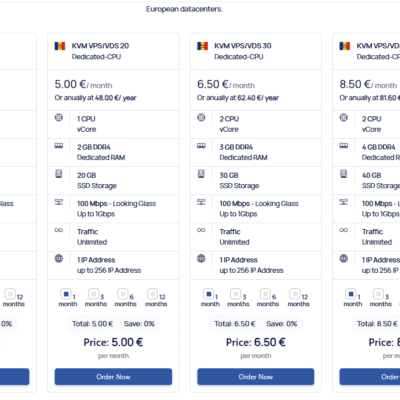Introduction
In the fast-paced digital world, video content is not just a trend—it’s a necessity. Whether it’s for branding, marketing, training, or entertainment, video has become the most engaging and effective medium for communication. Video production services offer businesses and individuals the tools, creativity, and technical expertise to bring their vision to life. From concept development to final delivery, professional video production transforms raw ideas into compelling visual stories. This comprehensive guide explores everything you need to know about video production services, including their importance, process, types, and how to choose the right partner for your next project.
What Are Video Production Services?
Video production services encompass the entire process of creating video content. This includes pre-production (planning and scripting), production (filming), and post-production (editing and finalization). Whether you’re crafting a cinematic advertisement, a corporate training video, or content for YouTube or social media, these services cover everything required to produce professional, high-quality video.
Professional video production companies typically offer a range of services that include concept development, scripting, storyboarding, location scouting, casting, directing, filming, editing, color correction, sound design, voiceovers, and even animation or visual effects.
Why Video Matters More Than Ever
According to recent statistics, video content accounts for over 80% of all internet traffic. Platforms like YouTube, TikTok, and Instagram Reels have reshaped how we consume content, and businesses have responded by increasing their investment in video. Here’s why video matters:
-
Engagement: Videos grab attention and keep viewers engaged longer than text or images.
-
Conversion: Landing pages with videos can increase conversion rates by up to 80%.
-
SEO Benefits: Websites with video are more likely to rank higher in search engine results.
-
Social Media Reach: Video content gets more shares and interactions than other content formats.
-
Brand Recall: Viewers retain 95% of a message when delivered via video versus 10% through text.
Types of Video Production Services
Video production services vary widely depending on the purpose and industry. Here are some of the most popular types:
-
Corporate Videos
Used for internal training, onboarding, company overviews, executive messages, and internal communications, corporate videos help unify teams and improve communication. -
Commercials and Advertisements
Designed to promote products or services, these videos often appear on TV, YouTube, or social media. They’re short, persuasive, and creatively directed to generate sales. -
Explainer Videos
These are ideal for simplifying complex concepts or products. They typically use a combination of live-action footage, motion graphics, and voiceovers to educate the viewer. -
Social Media Videos
Short-form videos tailored for platforms like Instagram, TikTok, Facebook, and LinkedIn. These videos must be catchy and concise to fit the social media environment. -
Event Video Coverage
Filming live events, such as conferences, product launches, weddings, or seminars, to create highlight reels, livestreams, or full-length documentaries. -
Testimonial and Case Study Videos
Used to build trust, these videos feature customers or clients sharing positive experiences about your brand or product. -
Animation and Motion Graphics
Ideal for brands that want to create visually dynamic content using 2D/3D animation, kinetic typography, or infographics. -
Training and Educational Videos
Used by schools, institutions, and corporations to teach or inform. They often include screen captures, narration, and structured scripts.
The Video Production Process Explained
Understanding the stages of video production is essential for a successful project. Here’s a breakdown of the typical process:
-
Pre-Production
-
Concept Development: Understanding your goals, target audience, and key messages.
-
Scripting: Crafting the script that outlines narration, scenes, and action.
-
Storyboarding: Creating a visual representation of scenes.
-
Budgeting: Estimating costs including talent, crew, equipment, locations, and post-production.
-
Scheduling: Planning shoot dates and deadlines.
-
Production
-
Filming: This includes setting up equipment, directing talent, and capturing footage.
-
Sound Recording: Ensuring clean audio using professional mics and boom poles.
-
Lighting: Crafting the mood and tone using lighting equipment.
-
Direction: A director ensures the shoot stays on vision and schedule.
-
Post-Production
-
Editing: Arranging the footage, adding transitions, effects, and trimming unnecessary content.
-
Sound Design: Adding music, voiceovers, sound effects, and mixing audio.
-
Color Correction: Ensuring consistency and visual appeal.
-
Final Review: Sharing a draft for client feedback and final revisions.
-
Delivery: Providing the finished video in the desired formats and resolutions.
Benefits of Hiring Professional Video Production Services
While smartphones and editing apps have democratized content creation, professional video production services offer distinct advantages:
-
High Production Value
From 4K cameras to advanced lighting and editing tools, professionals deliver cinematic-quality results that amateurs simply can’t match.
-
Creative Expertise
Experienced video producers understand storytelling, pacing, composition, and audience psychology, creating content that resonates deeply with viewers.
-
Time and Cost Efficiency
A well-organized production team completes projects faster and avoids costly mistakes by planning effectively and using resources wisely.
-
Brand Consistency
Professionals align every visual element with your brand’s style, voice, and message for a cohesive and polished look.
-
Access to Talent
Professionals have access to voiceover artists, actors, scriptwriters, and specialized crew members that elevate your video.
How to Choose the Right Video Production Company
Selecting the right partner is critical to the success of your project. Here are key factors to consider:
-
Portfolio and Experience
Review their past work to assess quality and versatility. Have they worked on similar projects or industries?
-
Creative Vision
Choose a company that brings fresh ideas and understands your brand identity and goals.
-
Communication and Collaboration
Strong communication throughout the process ensures your vision is executed as intended.
-
Budget and Pricing
Be clear about your budget from the start. A good production company will work within your limits while maximizing quality.
-
Client Reviews and Testimonials
Check references, reviews, and testimonials to gauge reliability and client satisfaction.
Trends Shaping the Future of Video Production
The video production landscape is constantly evolving. Here are some trends shaping its future:
-
Short-Form Video Dominance
TikTok, Instagram Reels, and YouTube Shorts have made short, engaging content a necessity for digital marketing.
-
Interactive Videos
Interactive elements like clickable hotspots and branching storylines are gaining popularity for education and e-commerce.
-
AI in Video Editing
Artificial Intelligence is streamlining the editing process, from auto-captioning to facial recognition and background replacement.
-
Live Streaming
Businesses and influencers are using live video to engage with audiences in real-time, creating a sense of authenticity and urgency.
-
360-Degree and VR Video
Immersive experiences using VR and 360-degree video are being adopted for virtual tours, training, and entertainment.
-
Personalization
Data-driven personalized video content, such as including a viewer’s name or company in the message, increases engagement and conversion rates.
Common Challenges in Video Production
Even with the best team, challenges can arise:
-
Scope Creep
Unclear goals or lack of planning can lead to scope creep—more work than initially intended, stretching the budget and timeline.
-
Miscommunication
Poor communication between the client and production team can result in misunderstandings and subpar output.
-
Technical Issues
Hardware malfunctions, bad weather, or low-quality footage can delay production and increase costs.
-
Budget Constraints
Trying to cut costs by doing it in-house can compromise the end quality. It’s important to prioritize certain aspects like scripting and editing.
Tips for a Successful Video Project
Here are a few tips to help ensure your video project is successful:
-
Set clear goals and know your target audience.
-
Invest time in pre-production planning.
-
Trust the creative team but provide clear, constructive feedback.
-
Plan for multiple formats (horizontal, vertical) to suit different platforms.
-
Don’t underestimate the power of a strong script and voiceover.
Conclusion
Video production services play an essential role in modern communication strategies. Whether you’re a startup, enterprise, nonprofit, or content creator, investing in professional video can elevate your brand, improve engagement, and drive results. With the right production team, a clear vision, and a focus on storytelling, your next video project can become a powerful asset that delivers long-lasting impact. As technology advances and audiences evolve, the possibilities of video are limitless—make sure you’re ready to take full advantage.





